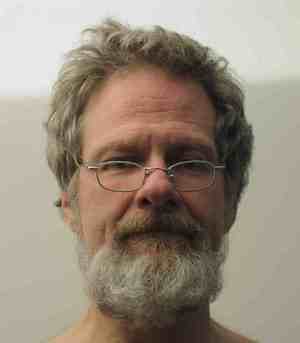UNIT TWO: What in the World Is AOL Anyway?
Chapter Two--The Socioeconomic and Business Beginnings of AOL As a Corporate Entity
America Online--Continued
SOLDIER BOYS AND TRUST-FUNDED 'FREE-SPIRITS' AND MONEY-BAGS IN SEARCH OF NEW FRONTIERS OF FREE ENTERPRISE--THE EARLY DAYS OF WHAT BECAME AOL
Section One
This second chapter in the AOL unit takes up where another massive giveaway of public domain is about to occur. Like the railroads, the highways and the broadcast spectrum before it, the delegation of the world wide web to the corporate sector defines the myth of 'free market capitalism' for what it is: an ideological construct meant to mislead and mollify. Capitalism has, without exception, depended on this underlying social support.
Of course, despite the vast amounts of public lucre poured into these systems and interlinkages, all along--from IBM, from Xerox, from Dell, and then from Apple and Microsoft and AOL and so on--millionaires and billionaires emerged from both the government feedback loops to these technological powerhouses and from their mass marketing in an increasingly 'wired' world. Moreover, although many of these fortunes had a head-start, as in the case of William Gates, for example, both the newly wealthy and already-monied, as the traditional economy faded, became hunters for opportunities in this new realm of electronic commodity-and-service riches.
This thirst for inevitably riskier bets became particularly pronounced over the course of "the long crisis," in the view of some analysts, a diminution of investment opportunity and profitability since the 1970's that has necessitated ongoing partial fixes, one after another. "A trend that can't go on forever, won't," as Herbert Stein quipped, summarizing the tendency toward bubbles and cycles of boom and bust from that period to the publication of this article in February, 2011.
In response, following their own cyclical patterns, venture capitalists have sought the new trend, the coming cachet, the en-vogue upsurge throughout this epoch, especially in the techno-sphere. The wreckage of the oil-crisis collapse of American exceptionalism was everywhere, in other words, but one route to exiting this economic carnage, which in some senses has continued to this most recent bursting bubble, was through 'New Media.'
The whole concept of 'venture capital,' in fact, dates from the embarkation toward Bush's 'endless frontier.' The very first such outfit began operations in 1946. Founded by Harvard Business School management professor and brigadier general Georges Doriot, the outfit integrated management 'science' with government-backed research in many of its enterprises.
Thus, the American Research and Development Corporation became the pioneer of the initial group of V.C. firms, the only one not induced by a Rockefeller's or a Whitney's or other individual zillionaire's fortune, founding its capital-base on Boston-based and university-centered elites that had both the cash to put down and the know-how to evaluate new projects. ARDC and its ilk focused funding in ways that traditional markets could not, combining both awareness of new and State-sponsored knowledge creation and bringing to bear minds that could evaluate and direct the commodification process itself.
Still more relevant to the eventual emergence of America Online was the way that Venture Capital itself came to express State protocols. Not only was military funding everywhere in the mix, but alphabet-soup agencies such as the DIA, the NSA, and the CIA created and maintained 'boutique' operations to promote the technologies that seemed most appealing, as well as having all manner of routine patron relationships with the more established V.C. firms. Truly, this manifestation of a fiscal agenda was coterminous with the imperial imprimatur that came to predominate capital's cultural and economic plans at the highest levels around the world.
Section Two
This restless search for intelligence networks that could both send and receive 'information' in one form or another thus came to define key aspects of the modern age. Not surprisingly, then, the starting thread of the AOL fabric is this adventuresome money.
The agreed-upon, purported lead role in AOL's prologue is quite a character. Many researchers prefer to dramatize William Von Meister as a wild March hare, hopping from one start-up to another, yet never staying long enough to cash out for more than a few million dollars--chump change in these circles--and pad the cashola that he brought from his inheritance.
(Note: You can view every article as one long page if you sign up as an Advocate Member, or higher).





